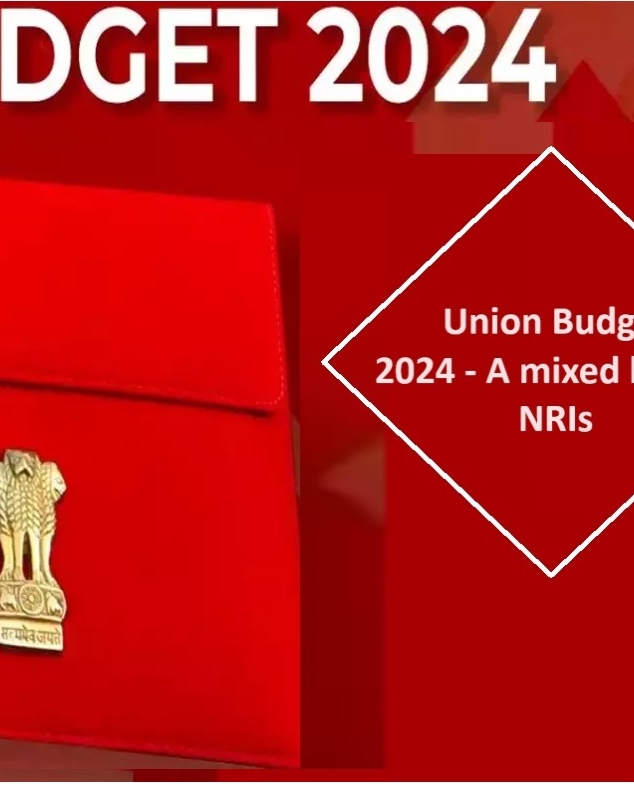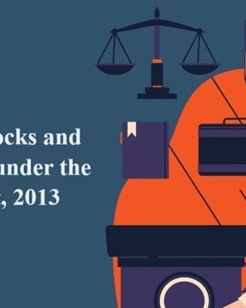
Status Of Homebuyers Who Are Decree-Holders As Financial Creditors Under Indian Insolvency Regime
Author: Sandeep Bhuraria, Senior Partner & Nishtha Grover, Associate at ZEUS Law
Published in LiveLaw
The real estate sector has exponentially boomed over past decades; however, it has suffered from unprecedented challenges in the wake of the COVID- 19 pandemic. As per the Report of Expert Committee which was constituted by Ministry of Housing and Urban Affairs to examine the issues related to Legacy Stalled Real Estate Projects, published in July, 2023, there are approximately 4.12 lakh stressed dwelling real estate units involving 4.08 lakh crores in these stalled real estate projects. The said Report further estimates that if 75% of the said stressed units are resolved, it will add to about three lakh units to the housing sector. The resolution of these stressed units will not only provide the much-needed respite to the estranged allottees but also significantly contribute towards economic growth of the country.
The Insolvency and Bankruptcy Code, 2016 (“Code”) has been enacted to resolve stressed entities with the aim to maximise the value of their assets in a time bound manner while balancing the interests of all stakeholders during the resolution process. Initially, the Code did not recognize the homebuyers of the real estate project as financial creditors or operational creditors, capable of initiating Corporate Insolvency Resolution Process (“CIRP”) proceedings of a real estate company.
In 2017, the CIRP proceedings of the real estate giant Jaypee Infratech Limited was initiated by the Hon’ble National Company Law Tribunal (“NCLT”) which caused hue and cry amongst the homebuyers as there was no legal framework to safeguard the repayments of their invested monies in the real estate projects. The distressed homebuyers of Jaypee Infratech Limited approached the Hon’ble Supreme Court in Chitra Sharma vs Union of India, as the amount of debts owed to the homebuyers which was paid by them as the advance to the corporate debtor was claimed to be more than what was due to the banks. In view of the prevailing legal framework, the banks were in more advantageous position than the homebuyers as only they were recognized as ‘financial creditors’.
The Hon’ble Supreme Court in Chitra Sharma (Supra) came to the rescue of the homebuyers in projects floated by Jaypee Infratech Limited and provided interim directions for appointment of the authorized representatives for representing the home buyers in the meetings of Committee of Creditors (“COC”) under Section 21 of the Code to espouse of the cause of the homebuyers and to protect their interests.
Homebuyers as financial creditors: A welcome move introduced in the Code
Following the move by the Hon’ble Supreme Court in order to absolve the grave injustice to the allottees who were getting no rights or recognition under the Code, the Insolvency and Bankruptcy (Amendment) Ordinance, 2018 (“2018 Ordinance”) was introduced which came into effect from 06.06.2018. Vide the 2018 Ordinance, the homebuyers were brought within the purview of financial creditors under the Code. Consequently, the Legislature in its wisdom brought about the Insolvency and Bankruptcy Code (Second Amendment) Act, 2018 (“2018 Amendment”) whereby the allottees for the very first time were given the stature of financial creditors under the Code. In the 2018 Amendment, an explanation was incorporated in the definition of ‘financial debt’ under Section 5(8)(f) of the Code which stated that any amount raised from an allottee under a real estate project shall be deemed to be an amount having the commercial effect of a borrowing. Hence, the outstanding debt owed to the allottees in the real estate projects was statutorily recognized as ‘financial debt’ and the allottees were brought within the purview of ‘financial creditors’.
The constitution validity of the aforesaid 2018 Amendment was challenged in the case of Pioneer Urban Land and Infrastructure Limited and Another v. Union of India and Others. The Hon’ble Supreme Court upheld the validity of the 2018 Amendment and, inter alia, held that the money raised by developers from the homebuyers is done with a profit-making motive and therefore, it has the commercial effect of a borrowing. Hence, the Hon’ble Apex Court included any amount raised from a allottee of a real estate project within the definition of ‘financial debt’ envisaged under section 5(8)(f) of the Code. The Hon’ble Apex Court also held that safeguarding interests of the homebuyers during the CIRP proceedings of a real estate developer is of paramount importance.
As an outcome of the 2018 Amendment, the homebuyers got the statutory rights as a ‘financial creditor’ to initiate the CIRP proceedings against the Corporate Debtor which opened flood-gates of the cases as even a single homebuyer could initiate the CIRP proceedings of an entire real estate company having multiple real estate projects. Thus, the 2018 Amendment granted unparallel powers to a single homebuyer to force an entire real estate entity into the shackles of CIRP thereby jeopardising the interests of the other homebuyers of the said real estate entity.
The threshold for initiating CIRP proceedings by Homebuyers
Further, in order to protect a financially viable real estate company from unwarranted resolution under the Code, the legislature introduced the Insolvency and Bankruptcy Code (Amendment) Act, 2020 (“2020 Amendment”) which amended Section 7 of the Code and introduced the minimum threshold to file an application under Section 7 of the Code against a corporate debtor. As per the 2020 Amendment, the CIRP proceedings can be initiated jointly, by not less than 100 of such allottees under the same real estate project or not less than 10% of the total number of such allottees under the same real estate project, whichever is less. The constitutional validity of the threshold to file the application under Section 7 of the Code by the homebuyers was upheld by the Hon’ble Supreme Court in Manish Kumar v. Union of India.
Position of homebuyers possessing decrees against the corporate debtor as creditors under the Code
Section 3(11) of the Code provides the definition of ‘creditor’ which means “any person to whom a debt is owed and includes a financial creditor, an operational creditor, a secured creditor, an unsecured creditor and a decree-holder.”
The Code does not provide for any definition for ‘decree-holder.’ Hence, it is relevant
to refer to Section 2(3) of Code of Civil Procedure, 1908 (“CPC”) wherein it is prescribed that a decree-holder means “any person in whose favour a decree has been passed or an order capable of execution has been made”
The Hon’ble National Company Law Appellate Tribunal, New Delhi Bench in Sh. Sushil Ansal vs Ashok Tripathi, held that the homebuyers who are decree-holders under under the Real Estate (Regulation and Development) Act, 2016 (“RERA”) do not fall within the class of creditors classified as financial creditors and hence, they cannot initiate the CIRP proceedings under Section 7 of the Code in order to execute the decree.
In the case of Sri Subhankar Bhowmik vs Union of India & another, the issue for consideration before the Hon’ble High Court of Tripura, Agartala Bench was whether a ‘decree-holder’, as envisaged under Section 3(10) of the Code, falls within the definition of a ‘financial creditor’ as prescribed under the Code. The Hon’ble High Court observed that after the initiation of CIRP proceedings, the rights of the decree-holder to execute the decree against the corporate debtor freezes by the virtue of moratorium under Section 14(1)(a) of the Code which specifically prohibits the execution of judgment, decree or order in any court of law. Further, the Hon’ble Court was of the view that the Code has rightly recognized decree-holders as a separate class of creditors in Section 3(10) since the decree holders are subjected to the rigors of moratorium, there is a protective provision for the interest of a decree holder as their rights are crystallized through a decree after it attains finality. The Court held that the Code is a beneficial legislation which focuses on revival of a corporate debtor. To give the status of ‘financial creditor’ to the decree holder, who holds decree against the corporate debtor through an adversarial process of litigation in a process formulated with the sole intent to revive the said corporate debtor would defeat the very object and purpose of the Code. In view of the same, the Hon’ble Court upheld the distinction of decree holders as a separate class of creditors from ‘financial creditors’ and ‘operational creditors.’
Lately, the question whether homebuyers who are the beneficiaries of a decree are distinct from the other homebuyers or not, has been settled by the Hon’ble Supreme Court in Vishal Chelani & others vs Debashis Nanda. The Hon’ble Supreme Court in Vishal Chelani has held that the homebuyers who are the decree-holder would be recognized as ‘financial creditor’ as there can be no further classification in a class of creditor.
In the aforesaid case, the Appellants were the homebuyers who had obtained decrees of refund from Uttar Pradesh Real Estate Regulatory Authority (“UPRERA”) against Bulland Builtech Private Limited (“Corporate Debtor”). The Appellants had filed an application before the Hon’ble NCLT to direct the resolution professional to admit their claims in the category of financial creditors in a class / homebuyers and not as ‘other creditors.’ The Hon’ble NCLT dismissed the application with a view that after obtaining the recovery certificate from UPRERA, the Appellants are to be treated as financial creditors and not as creditors in a class and the same was upheld by the Hon’ble NCLAT.
Being aggrieved by the order of NCLAT, the Appellants knocked the doors of the Hon’ble Supreme Court. The key observations of the Hon’ble Supreme Court regarding the status of homebuyers who have obtained decree in their favour are as follows:-
- Section 5(8)(f) of the Code does not mention any distinction between different classes of the financial creditors.
- To treat a particular segment of a class of financial creditors differently from others on the ground that one or some of them had a decree of recovery in their favour would be highly inequitable.
- Passing of a decree only crystallizes the claim of the party and the same does not alter the status of the concerned party.
Hence, in view of the aforesaid observations, the Hon’ble Supreme Court set aside the order of Hon’ble NCLAT and the Appellants who were the homebuyers having decree of recovery in their favour, were declared to be at par with the other homebuyers/financial creditors in the resolution process.
One crucial aspect that needs to be noted is that a homebuyer pays substantial sums of money to the developers for purchasing the units in capacity of a ‘financial creditor’ as there is consideration for the time value of money. The ruling in the Pioneer Urban Land and Infrastructure Limited (Supra) recognizes the rights of the homebuyers as ‘financial creditors’ and also its rights to pursue other remedies such as under RERA and the consumer protection laws in order to redress their grievances. It is trite to mention that the nature of claims and rights of the allottees are different from the other financial creditors such as banking and financial institutions. The allottees are majorly interested in getting the possession of their unit in which they have invested their hard-earned monies rather than recovery of the amount deposited with the corporate debtor.
If the homebuyers obtain the decree of recovery of amounts against the developer and in the meanwhile, the developer falls into the knell of CIRP proceedings, the money still remains in the possession of the corporate debtor as execution of the judgment, order and decree is barred in light of the moratorium. The decree merely crystallizes the claim of the homebuyer and the money disbursed by the allottee continues to be in the possession of the corporate debtor. Hence, the same would not change the position of the homebuyers from ‘financial creditors’ to ‘other creditors.
In our opinion, a homebuyer should not be classified as an ‘other creditor’ merely because they have decided to exercise their legal rights and remedies available under law and obtained a decree of refund in their favour from RERA. Further, by no stretch of imagination a decree of refund issued by RERA in favour of a homebuyer should alter the underlying nature of the transaction, i.e., a financial debt duly disbursed by the said homebuyer against time value of money to a corporate debtor in hopes of getting possession of their respective unit. The homebuyers as financial creditors have representation in the COC through an authorized representative. A seat in the COC means that the homebuyers have a voice while deciding the outcome of the corporate debtor undergoing CIRP. Merely because a homebuyer has decree in his favour which cannot be executed against the corporate debtor on account of the moratorium under the Code, taking away the representation of a homebuyer in the COC by declaring him ‘other creditor’ is prima facie arbitrary and unjust.
In the nutshell, it can be said that insolvency resolution of a corporate debtor in a real estate sector is a different ball game than the corporate debtors engaged in other sectors. In a welcome move, the Hon’ble Supreme Court in the case of Vishal Chelani (Supra) has recognized and upheld the status of the homebuyers who are the decree-holders as ‘financial creditors’ under the Code.





















